President Orbán has the courage and integrity to stand up to the secularist bullying of the European Union and to the efforts to force Hungary to allow countless Islamic immigrants into its midst. And yet even heroes need correcting when they get things wrong…
 The discussion of Hillaire Belloc’s writing on Europe and the Faith, which was the subject of my last essay, serves as a preamble to a discussion of the Christmas address given a few weeks ago by Hungarian President, Viktor Orbán, which was published here at The Imaginative Conservative. One can see many commendable parallels between Belloc’s critique of Europe and the Faith and President Orbán’s, and yet, amidst all the glitter and gold of solid reasoning, there are problems that, if not addressed, could lead to the gutter of ethnolatry, the worship of one’s own race and nation.
The discussion of Hillaire Belloc’s writing on Europe and the Faith, which was the subject of my last essay, serves as a preamble to a discussion of the Christmas address given a few weeks ago by Hungarian President, Viktor Orbán, which was published here at The Imaginative Conservative. One can see many commendable parallels between Belloc’s critique of Europe and the Faith and President Orbán’s, and yet, amidst all the glitter and gold of solid reasoning, there are problems that, if not addressed, could lead to the gutter of ethnolatry, the worship of one’s own race and nation.
Let’s start with the following paragraph from President Orbán’s speech:
When we draw the boundaries of our identity, we mark out Christian culture as the source of our pride and sustaining strength. Christianity is a culture and a civilisation. It is within this that we live. The essence is not how many people go to church, or how many pray with true devotion. Culture is the reality of everyday life: how we speak and behave towards one another; the distance we keep from one another and how we approach one another; how we enter this world, and how we leave it. For European people, Christian culture determines the morals of our daily lives.
At first glance, we might be edified and encouraged by words such as these. There is, however, a devil in the detail; or, in fact, several devils in several details. Christianity should always be a source of humility and never of pride, the latter of which is the banner of Christianity’s enemies. Even though “pride,” like “love,” has many applicable meanings, it is dangerous to employ the word, and even more dangerous to succumb to the thing itself. To say that there is such a thing as good pride is to wander into dangerous territory.
Then there is President Orbán’s definition of Christianity as “a culture and a civilisation.” This is to get things exactly backwards. Christianity is the worship of the one true Triune God, who became Incarnate in the person of Jesus Christ, who shall come to judge the living and the dead. Any culture or civilization which arises from the practice and belief of this religion is a fruit of the religion; it is not the religion itself. To return to our original quibble with Belloc, culture and civilization do not forge Christianity, they are forged by it. And, contrary to the claims of President Orbán, the essence of a Christian culture is determined by “how many people go to church, or how many pray with true devotion.” The faith of a people, or a people’s lack of faith, is crucial to the health and wellbeing and ultimate sustainability of a culture. The fewer people who believe and practice the Faith, the fewer people will be truly civilized and truly living the culture. As Chesterton rightly perceived, the modern world is living on its Christian capital. It is spending what it is no longer earning. It is, therefore, becoming spiritually and morally bankrupt. This is directly connected to the number of people practicing the Faith. If we want a renewal of Christian culture and Christian civilization we must have a spirit of evangelization. We must encourage people to return to church in ever greater numbers. We must encourage them to pray more often and with greater fervour.
Let’s return to President Orbán’s speech:
Our culture is the culture of life. Our starting-point—the alpha and omega of our philosophy of life—is the value of life, the dignity that every person has received from God. Without this we could not evaluate “human rights” and similar modern conceptions. This is why we doubt whether we can export this into the life of civilisations built on other foundations.
It is true indeed that Christian culture is the culture of life, rooted in the dignity of the human person as having been made in the image and likeness of God, but it is not true that contemporary European culture is the culture of life. On the contrary, the culture of death, which includes the death-cultures of Revolutionary France, Revolutionary Russia, and National Socialist Germany are all European in origin, having as their roots the anti-Christian apostasy of the Enlightenment. The same apostasy has also led to the killing of millions upon millions of unborn children, the slaughter of the innocents, the death toll of which rises daily. This is the legacy of Europe’s apostasy, her rejection of the Faith. President Orbán would no doubt agree. And yet we are being disingenuous when we choose to claim that this ugly reality is not also part of the reality which we call Europe.
And what are we to make of President Orbán’s doubt that the Christian culture of life can be exported “into the life of civilisations built on other foundations”? Is he saying that Christianity is only for Europeans because only Europeans are civilized enough to believe in it? Is he forgetting that Europe was itself built on other foundations, pagan foundations, and that it was the evangelical zeal of the early Christians which converted our European ancestors to the One True Faith? And is Mr. Orbán unaware of the spread of Christianity around the world? Is he unaware that the Faith is flourishing in civilizations built on other foundations, such as China, for instance, and that the Faith is growing in these parts of the world at a faster rate than it is decaying in Europe? Is he aware that African Bishops are defending the ancient and traditional integrity of the Faith from modernist attacks upon it by European bishops? No, Mr. Orbán, the Faith is not the private possession of Europe, which has actually become dispossessed of it because of its indifference to it or its hostility towards it. Dare we prophesy that Europe will be re-evangelized in the future by Christian missionaries from Africa or China, which would be a delicious irony indicative of a divine sense of humour?
Let’s return one final time to President Orbán’s speech:
They do not want us to be who we are. They want us to become something which we do not want to be…. By the light of Christmas candles we can clearly see that when they attack Christian culture they are also attempting to eliminate Europe. They want to take our life from us, and exchange it for something that is not our life. In return for the life we have lived up to now they are promising one which is new and more enlightened. This, however, is a utopia: not the essence of real life, but distilled from abstract, theoretical sophistry. Utopias are dreams: potentially wonderful, and therefore alluring. But they are just as incoherent, impenetrable, obscure and meaningless as dreams are. One cannot live in them, or be guided by them.
Once again, it is difficult to read such words without being uplifted, without being edified. We sense in President Orbán a political leader who has the courage and integrity to stand up to the secularist bullying of the European Union and to the efforts to force Hungary to allow countless Islamic immigrants into its midst, with the disastrous consequences that are currently playing themselves out in all those other European countries that have already done so. Viktor Orbán is a wise and courageous leader; no doubt about it. He is also right about utopias, but only partially so. He is right that utopias are “not the essence of real life, but distilled from abstract, theoretical sophistry.” They are indeed “dreams.” The problem is that they are dreams which quickly become nightmares. President Orbán is, therefore, only partially correct in believing that people “cannot live in them, or be guided by them.” It is not possible to live in a utopia because it is, as its etymology indicates, a “no-place,” a nowhere; a dream. And yet countless people are guided by utopian dreams, and it is these dreams that turn the real world into a living nightmare. The dreams of the French or Russian revolutionaries, or the Nazi stormtroopers, never came true because they are mere ideological fantasies; but the efforts to make the dream come true has created real-life nightmares, a fact that President Orbán, as a veteran of the struggle against communist tyranny in Hungary, knows only too well. If utopias were only dreams, they would not matter. The problem is that they become a vision by which people are turned into monsters who kill their neighbours, and even their own children.
In spite of my critiquing of President Orbán’s speech, much of which I applaud wholeheartedly, I remain an avid admirer of his courage and determination to fight secularist tyranny in Europe. He is a modern-day hero. And yet even heroes need correcting when they get things wrong. As Chesterton said of his relationship with his brother, they were always arguing but they never quarreled. In similar vein, I see President Orbán as a brother, as a brother in arms against common anti-Christian enemies. The foregoing is, therefore, a gentle disagreement, or perhaps a civilized argument; it is not, and will hopefully never be, the beginning of a quarrel.
The Imaginative Conservative applies the principle of appreciation to the discussion of culture and politics—we approach dialogue with magnanimity rather than with mere civility. Will you help us remain a refreshing oasis in the increasingly contentious arena of modern discourse? Please consider donating now.
The featured image is from the European People’s Party and is licensed under Creative Commons 2.0.


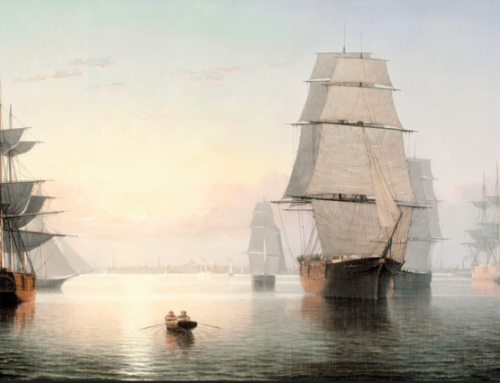
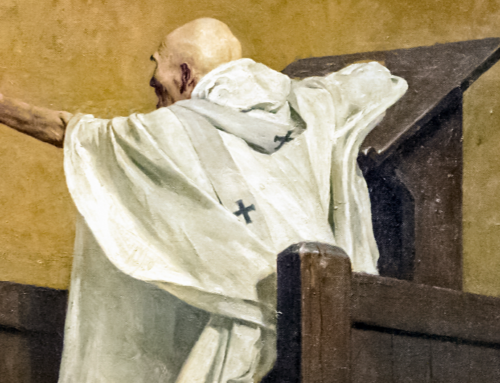
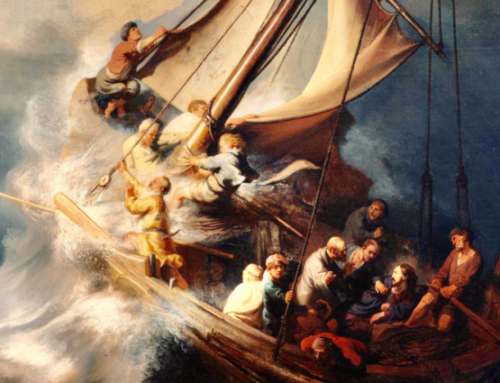
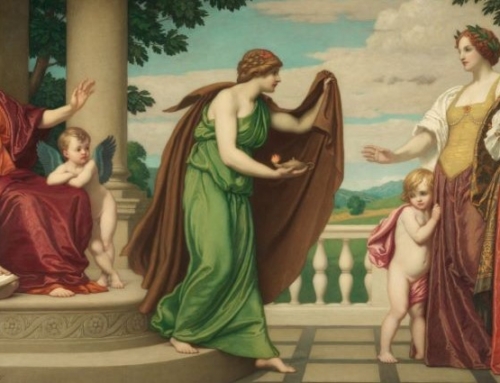
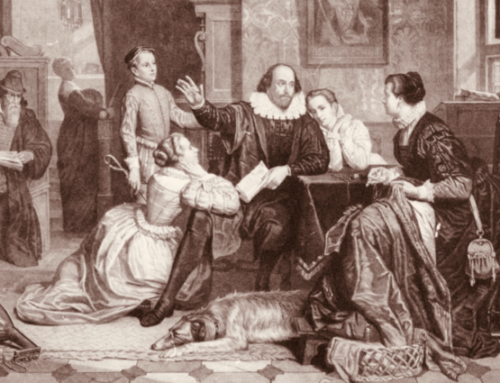
Secularist tyranny is a political movement not unlike Islam. Islam as Shariah Law, can also impose itself as secularist tyranny. Secularist tyranny’s greatest weapon is political correctness, which I define as the total control of language. When citizens cannot freely speak, whatever is said has to be articulated in such a way that, even those in authority have lost the ability to lead. I read Orban’s speech as one who is soon to lose the “war”. Western civilization has rapidly become a people living in fear instead of freedom,
Joseph,
Very fine remarks. So many are apt to focus only on the good in President Orbán’s speech and overlook the bad. That is a fatal error which risks us forgetting that the true Faith is meant to be preached to all men and to transform all cultures. Thank you.
The Catholic Church has been preaching the Gospel for over 2,000 years. We can look back and see how well that has fared with different cultures. Islam has been a strident enemy of the Church as we can see. The Hungarian people and those others who lived behind the “Iron Curtain” know tyranny when they see it, even if it originates in Brussels. This manufactured invasion of what once was Christendom has, as its purpose, the final destruction of Christianity, in particular Catholicism. These so-called refugees are mostly single males of military age. Let them go to Saudi Arabia or the Emirates who have the money, the means and the real duty to take them in. The current vicious crimes committed by these “refugees” are acts of war on a defenseless population. Why should any country be forced to accept that?